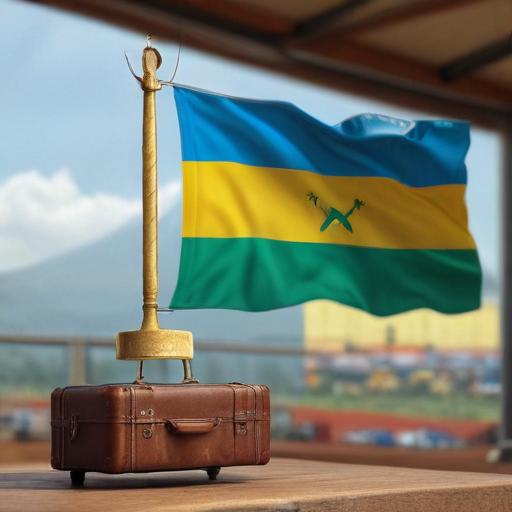Rwanda stands at a unique nexus of foreign investment, ongoing humanitarian crises, and sporting milestones on the African continent. The small East African nation is experiencing a complex interplay of challenges and opportunities that shape its regional influence and global reputation.
Since 2021, Rwanda has deployed thousands of troops to Cabo Delgado in Northern Mozambique to combat ISIS Mozambique (ISM) insurgents who launched a violent attack on Palma, where a significant $25 billion liquefied natural gas (LNG) project is being developed. This military engagement has reportedly cost the Rwandan government around €200 million, and it highlights the broader geopolitical significance of Rwanda’s involvement in regional security.
In contrast, the eastern Democratic Republic of the Congo (DRC) grapples with the repercussions of the rebel M23 group seizing control of Goma, resulting in a humanitarian disaster with over 3,000 fatalities and 400,000 displaced individuals. The M23’s grip on this key city has left those who remain under constant threat, while humanitarian organizations struggle to operate under the rebel group’s authoritarian rule.
Amidst these turbulent dynamics, Rwanda is also preparing to host the Union Cycliste Internationale (UCI) World Cup, an event that will mark the first time Africa hosts this prestigious sporting competition. The smooth roads and scenic landscapes of Kigali provide an ideal backdrop for the event, which aligns with President Paul Kagame’s vision of establishing Rwanda as a global destination. This sporting event embodies Rwanda’s efforts to promote high performance in sports and improve public health through cycling, in accordance with its 2030 National Sports Policy.
Rwanda’s recent transformations, particularly in the wake of the devastating genocide in 1994, are notable. The nation has worked diligently to rebuild itself, adopting a clean, orderly image that has led to comparisons with other successful nations like Singapore. Despite the remarkable recovery, the country’s ambition to harness its mineral wealth, alongside resources from neighboring nations, has prompted involvement in regions suffering from instability.
President Kagame has maintained a contentious stance regarding Rwanda’s military engagements, especially allegations of supporting the M23 group in eastern Congo. Validations of Rwandan troops and support for M23 have emerged from multiple independent sources, raising concerns about Rwanda’s role in perpetuating the conflicts it claims to mitigate.
The juxtaposition of Rwanda’s appearances as a paragon of post-genocide recovery against its entanglements in regional conflicts raises questions about accountability and ethics. Rwanda’s dual identity as a bastion of order and as a player in regional humanitarian disasters reflects the complexities of international relations in Africa.
In conclusion, Rwanda’s positioning as a vital player in both economic and security matters on the continent is indeed a double-edged sword. As the nation embarks on hosting a major sporting event, it is crucial to recognize the underlying tensions and conflicts that persist, reminding observers that progress often comes with significant challenges.
